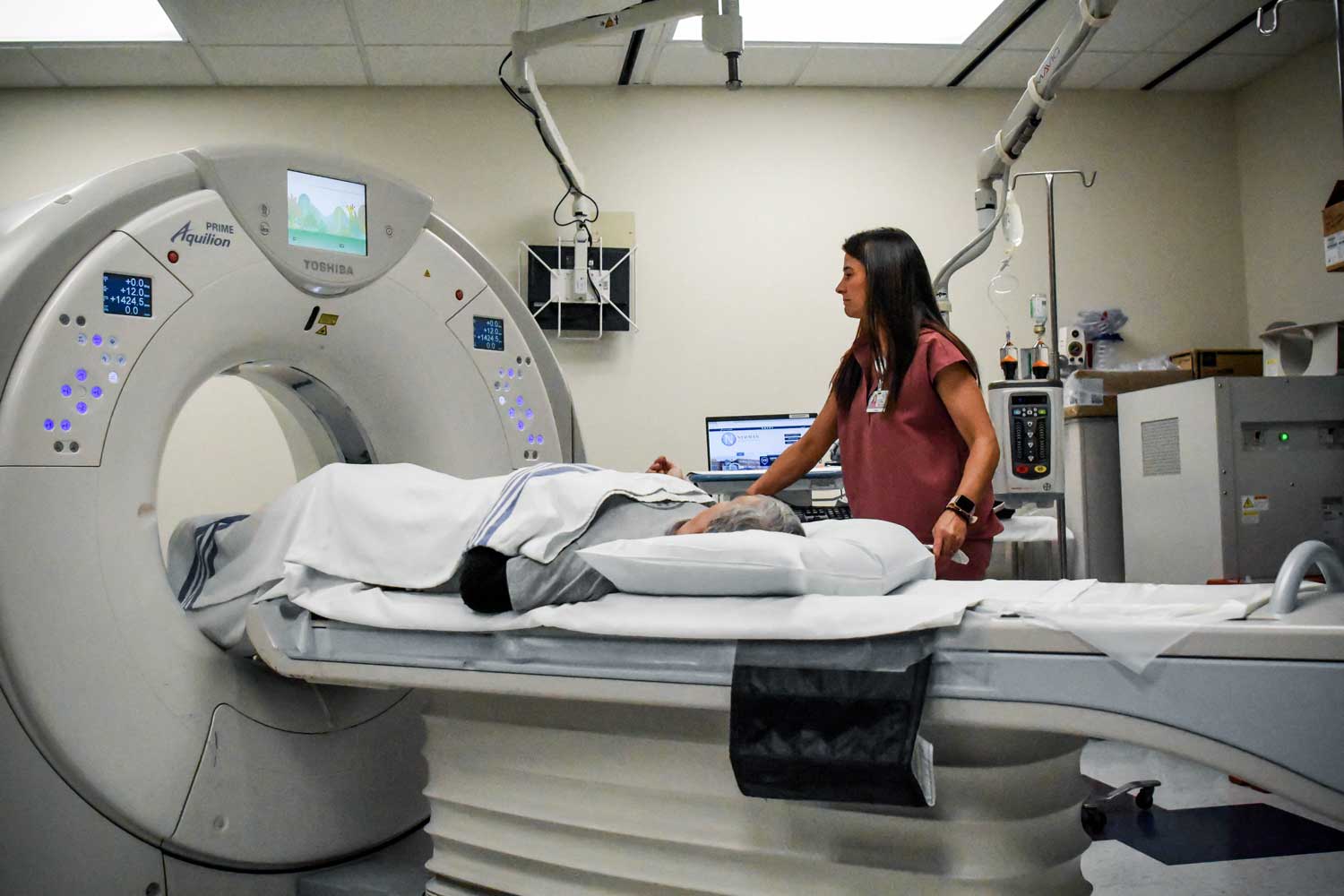CT Scan
Computed tomography (CT), also known as a “CAT scan,” is a medical diagnostic tool that creates images of internal structures within the human body. CT scans aid physicians in diagnosing disease, viewing internal abnormalities, and assessing the extent of trauma.

Using X-rays and computer technology, a CT scan creates pictures of your organs, bones, and more. It is far more informative than a simple X-ray, which is why it is such a useful diagnostic tool to the medical profession.
Newman Regional Health is equipped with a state-of-the-art Aquilion ONE / GENESIS Edition CT Scanner, delivering highly detailed, non-invasive images of the body. This advanced technology helps physicians quickly and accurately diagnose conditions affecting the spine, head, chest, abdomen, and more. By capturing multiple wafer-thin images in seconds, the scanner reduces exam times while improving patient comfort. It also expands our diagnostic capabilities with applications such as CT angiography, giving providers greater image quality and confidence in every study. This scanner represents a $1 million investment in gold-standard imaging. The new scanner is four times more powerful in imaging acquisition and offers advanced features such as cardiac scoring, CT brain perfusion for stroke evaluations—critical tools for emergency and preventive care.
Why the Test is Performed
The scans are used to detect several issues, including:
- Detection of cancerous tumors
- Bone & joint issues like fractures
- Internal bleeding & blood clots
- Emphysema
- Heart disease
- Liver masses
- Fluids & infection
Additionally, CT scans are a tool for physicians administering treatment plans and procedures, including surgery and radiation therapy. Scans may be used over various periods to see how a treatment plan is working – is the bleeding stopped, is the tumor smaller?
When doctors need to see your tissue more clearly or need a more in-depth look at specific organs, they may order a CT Scan with contrast. In that instance, a dye is injected into the patient through an IV, orally via a liquid or in some cases as an enema. When contrast is used, the patient is encouraged to drink plenty of water to remove the dye from the body.
What to Expect
Getting a CT scan is not painful, and a scan can be ordered for virtually any part of your body. Eating and drinking is restricted for hours before the scan. You should not have a scan if you are pregnant, and serious thought should be given before a scan is performed on a child. Typically, there will be an adjustment made to the scan when being used on a child. The scans use X-rays, which produce ionizing radiation. While the risk of developing cancer from the radiation is low, it does increase as you have additional scans.
CT scans are arranged and scheduled by your care provider.
